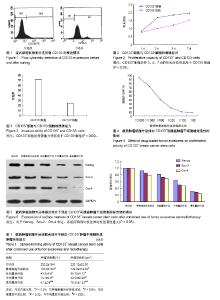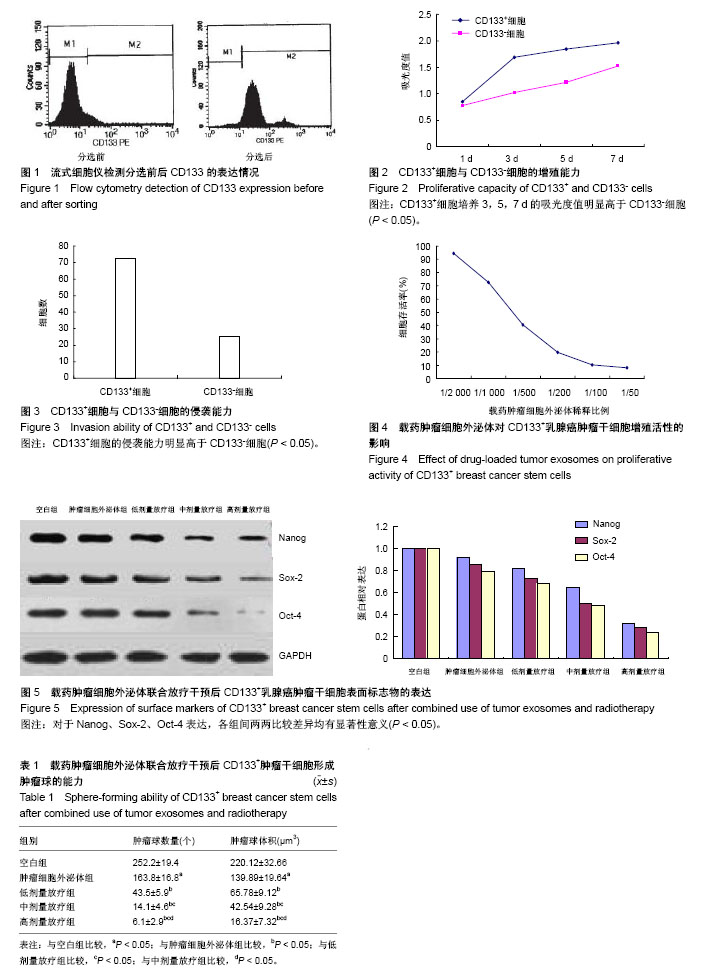| [1] Sikkens EC, Cahen DL, de Wit J, et al. A prospective assessment of the natural course of the exocrine pancreatic function in patients with a pancreatic head tumor.J Clin Gastroenterol. 2014;48(5):e43-46. [2] Li WW, Wang HY, Nie X,et al. Human colorectal cancer cells induce vascular smooth muscle cell apoptosis in an exocrine manner. Oncotarget. 2017;8(37):62049-62056. [3] 解修峰,史志周.肿瘤及其微环境源性外泌体miRNAs在致癌机制、肿瘤诊断和治疗中的研究进展[J].基础医学与临床,2017, 37(9):1326-1330.[4] 刘文明,范燕云,田钊旭,等.外泌体在胰腺癌中的作用[J].胃肠病学,2017,22(5): 312-315.[5] Masamune A, Yoshida N, Hamada S, et al. Exosomes derived from pancreatic cancer cells induce activation and profibrogenic activities in pancreatic stellate cells. Biochem Biophys Res Commun. 2018;495(1):71-77.[6] 张国滨,聂秀涛,张昀昇,等.不同氧环境下胶质瘤干细胞源性外泌体携带miRNAs对肿瘤增殖作用的研究[J].中华神经外科杂志, 2017,33(5):508-512.[7] Figueroa J, Phillips LM, Shahar T, et al. Exosomes from Glioma-Associated Mesenchymal Stem Cells Increase the Tumorigenicity of Glioma Stem-like Cells via Transfer of miR-1587. Cancer Res. 2017;77(21):5808-5819. [8] Tang K, Zhang Y, Zhang H, et al. Delivery of chemotherapeutic drugs in tumour cell-derived microparticles. Nat Commun. 2012;3:1282. [9] Ran L, Tan X, Li Y, et al. Delivery of oncolytic adenovirus into the nucleus of tumorigenic cells by tumor microparticles for virotherapy. Biomaterials. 2016;89:56-66.[10] Kim JS, Shin DH, Kim JS. Dual-targeting immunoliposomes using angiopep-2 and CD133 antibody for glioblastoma stem cells. J Control Release. 2018;269:245-257.[11] 林家耀.肝细胞性肝癌组织样本中CD133+细胞肿瘤干细胞样特性的研究[D].南宁:广西医科大学,2016.[12] 陈加贵,邓敬桓,何敏.肝癌细胞外泌体的分离与鉴定[J].世界华人消化杂志, 2016,24(5):737-743.[13] 郑学嵩,王映,蒙以良,等.含甲氨蝶呤的肿瘤源性微粒联合放疗体外对肺腺癌干细胞增殖的影响[J].肿瘤研究与临床,2016,28(10): 654-663.[14] 孙岚,宋东颖,刘岩磊,等.人肝癌细胞系Huh-7中CD133+细胞的分离及鉴定[J].国际药学研究杂志,2013,40(2):198-202.[15] 王园园,谭小燕,胡明华,等.CCK-8法检测小鼠淋巴细胞增殖的条件探讨[J].药物评价研究,2017,40(2):206-209.[16] 徐驿 ,张亦弛,王许安,等.微RNA-490-5p抑制人肝内胆管细胞癌RBE细胞的侵袭和迁移[J].肿瘤,2017,37(7):700-709.[17] 陈勉之,钟兰,魏冬梅,等.细胞密度对卵巢癌干细胞悬浮球诱导的影响[J].四川大学学报:医学版,2017,48(5):758-762.[18] 宋爽,徐琳琳.表面标志物Cripto-1表达对食管癌干细胞生长的作用机制研究[J].蚌埠医学院学报,2017,42(10):1313-1317.[19] 张阳,王英丽,徐广伟.不同来源外泌体对巨噬细胞功能的影响[J].中国妇幼保健, 2014,29(18):2973-2975.[20] 杨云山,蔡志坚,钟海均.热激胃癌细胞外泌体致敏DC诱导显著的抗肿瘤免疫反应[J].中国肿瘤生物治疗杂志,2016,23(2): 188-194.[21] Li W, Zhang X, Wang J, et al. TGFβ1 in fibroblasts-derived exosomes promotes epithelial-mesenchymal transition of ovarian cancer cells. Oncotarget. 2017;8(56):96035-96047.[22] Zitvogel L, Regnault A, Lozier A, et al. Eradication of established murine tumors using a novel cell-free vaccine: dendritic cell-derived exosomes. Nat Med. 1998;4(5): 594-600.[23] 张娟.人脐带血间充质干细胞来源的外泌体对小鼠肝纤维化修复作用的研究[D].呼和浩特:内蒙古医科大学,2015.[24] 张亮,王帅帅,陈忍霞,等.猪繁殖与呼吸综合征病毒感染的MARC-145细胞中外泌体的分离与鉴定[J].畜牧兽医学报, 2017, 48(7):1300-1305.[25] 李俊俊,涂文志,刘勇.外泌体检测在肿瘤放化疗中的应用[J].辐射研究与辐射工艺学报,2017,35(3):11-18.[26] Shen Y, Guo D, Weng L, et al. Tumor-derived exosomes educate dendritic cells to promote tumor metastasis via HSP72/HSP105-TLR2/TLR4 pathway. Oncoimmunology. 2017;6(12):e1362527.[27] Whiteside TL. The effect of tumor-derived exosomes on immune regulation and cancer immunotherapy. Future Oncol. 2017;13(28):2583-2592. [28] Guo D, Chen Y, Wang S, et al. Exosomes from heat-stressed tumour cells inhibit tumour growth by converting regulatory T cells to Th17 cells via IL-6. Immunology. 2017 Dec 2. doi: 10.1111/imm.12874. [Epub ahead of print][29] 刘允刚.CpG寡核苷酸联合肿瘤细胞外泌体对小鼠结肠癌的治疗作用[D]. 南京:南京大学,2010. |

